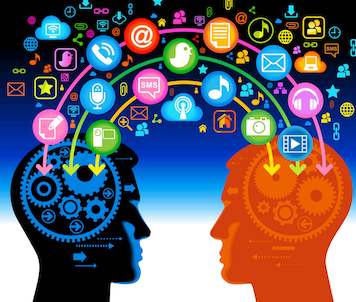Dr. Richard Davidson, a neuroscientist from the University of Wisconsin in Madison, and Dr. Sara Lazar, a neuroscientist based out of Massachusetts General Hospital and the Harvard Medical School gives an interview on his findings with meditation and its effects on the brain.
The following interview has been edited and condensed for clarity.
Host Bob Macdonald: Dr. Davidson, what was the most striking thing you found when you studied the meditation experts the Tibetan Buddhist monks?
Richard Davidson: Probably the most striking thing was in terms of the scientific findings was the presence of these very high amplitude gamma oscillations that occurred in the meditation period when they were meditating, but also were very prominent in their so-called baseline state. And I should say that these are if you will professional meditators. These are people who have an average of about 34,000 hours of lifetime practice and listeners can go do the arithmetic at home. But that's a pretty big number.
BM: What was going on in their brains that's different from what would be going on in say my brain?
RD: One of the important characteristics of these long term meditators if you will is that the distinction between the state of meditation in their ordinary state if you will is blurred.
This is the what we think of as the transition from a state into a trait. That is, it becomes an enduring characteristic of their minds and brains, rather than something transient that occurs only when they practice meditation.
Dr. Sara Lazar: Well we looked at brain structure and what we found is that there's several brain regions where there is more gray matter in the long term meditators compared to non-meditators. And as Dr. Davidson said that when you start meditating regularly that there is a shift that there's a blur between your meditation state and your everyday state.
And so we're interpreting these differences in gray matter to reflect that. That this is perhaps why and how you can get these shifts you're not meditation state looks more like your meditation state - the brain actually starts to rewire itself. And that's what we saw evidence for in these long term meditators.

SL: The most pronounced changes were in the insula. This is an area that's involved in integrating sensory experiences with cognitive thinking. And so you could think of that, sort of in a very loose hand-waving sort of way, as the mind body sort of area. We also found areas in the front of the brain which is an area involved in rational thinking and decision making.
BM: Dr. Lazar, we hear a lot about enlightenment, if meditation really does work. From a scientific point of view what is that possible do you see it?
SL: I think it's important to make a distinction between people who meditate for 20, 30, 40 minutes a day for stress reduction and people who are really committed to obtaining enlightenment. As Dr. Davidson pointed out, you could think of those monks as being professional meditators. And so I think that it really takes that sort of commitment -- full time commitment for many, many years -- in order to reach enlightenment. For the average Joe who's just meditating for stress reduction that that's not really a realistic goal.
BM: Dr. Davidson, you say that meditation could make people feel worse. What do you mean by that?
RD: It can exacerbate depression, it can precipitate psychosis. It can do some harm. It's really important for an individual who may be predisposed and have a history of some psychiatric difficulty to engage in meditation practice under the guidance of a teacher who is both a mental health practitioner as well as a meditation teacher.
And often if a person I think is doing worse it could very well be because the nature of the instruction is not as attuned to where the person is as it might be.
BM: Dr. Lazar, how do you feel about people going to a phone app for their guided meditations without a teacher present?
SL: The apps are like a book or any other recording or any other things that have existed in the past. I think they're great as a supplement but I don't think anything compares to having a teacher that you can talk to about your experience.
Hypnosis for IBS
Become Friends with Food...
How to Stop Being Negative : Neuroscience tips
The latest neuroscience suggests we...
What is Coaching?
Coaching is a conversation. Yet it...
Depression Saps Endurance of the Brain’s Reward Circuitry.
"Being able to sustain and even...
Presuppositions of NLP
A person always makes the best choice they can, given their map of reality at the time. The choice may be self-defeating, bizarre or evil, but for them, it seems the best way forward. Give them a better choice in their map of reality and they will take it. Even better – help them upgrade their map to one with more choices in it. Another way of putting this is: We all act according to the level of awareness that’s available to us in that moment. The reason why people regret certain past actions is because they have greater awareness now, and because of this phenomena, they eventually overcome their current regret too. Based on the premise of this presupposition, whoever caused us pain in the past, did so based on their level of awareness at that time. They were trying to fulfil a certain value in their old map of reality and never knew how else to go about it back then. Looking back on that past hurt from a broader and resourceful perspective in the present can enable healing and release stuck emotions. Therefore, the broader our perspectives now, the more choices we have – in the past, present and future.
When to do a Dr. Joe Dispenza Meditation to Improve the Power of the Subconscious Mind
The body is in the past because thoughts are the language of the brain and feelings are the language of the body and how we think and how we feel creates our state of being. Here’s the problem: if you can’t think greater than how you feel and you believe that your thoughts have something to do with your destiny and you understand that feelings and emotions a record of the past, then you’re thinking in the past and your life will stay the same.
















